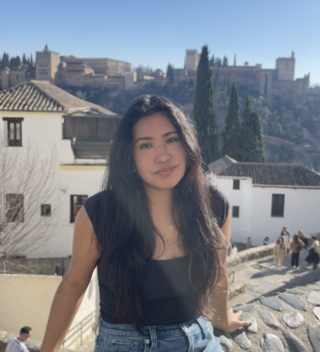Anette Diaz ('25)

Anette Diaz (She/Her/Ella) is a junior in Stiles majoring in Latin American Studies alongside the Education Studies Intensive Certificate and Spanish Certificate. She is inspired to pursue education by a story about her mother and paternal grandfather. “Everyday, after working in the fields, he would come home, sit under his favorite tree, and spend hours reading them,” she says. “When he had gone through all of them, he’d simply start them again, and on and on, until it was my mother who eventually started bringing down the books for herself. I’ve always found this story to be especially crushing, not just for its reminder of a person that I’ll never get to meet, but also for the fact that despite being full of curiosity, neither of its protagonists ever got to finish middle school. My interest in education, thus, is rooted in my vivid understanding of its disparate access and the not-so-subtle ways it echoes through generations.”
Something Anette appreciates about the Education Studies program is its departure from the idea of education as an equalizer in which everybody has an equal footing. Instead, she says, “the program pushes us to recognize the gaps and imagine solutions not as individuals but as communities.” Anette’s goal has always been to combine her areas of interest by focusing on education in a Latin American context. Because of this, she particularly enjoyed taking a seminar on Latinx Communities and Education in the United States with Professor Cordova-Cobo.
In the summer of 2024, Anette will be working with a migrant collective in Santiago, Chile that focuses on advocating for and safeguarding the rights of children and families. She will work on socio-legal interventions, as well as co-leading tutorials, workshops, and other recreational activities for children. Through this experience, Anette hopes to learn more about the role of K-12 heritage programs in migratory transition processes and identity construction. After college, she wants to use this knowledge to work directly with communities in Latin America, eventually teaching as well.